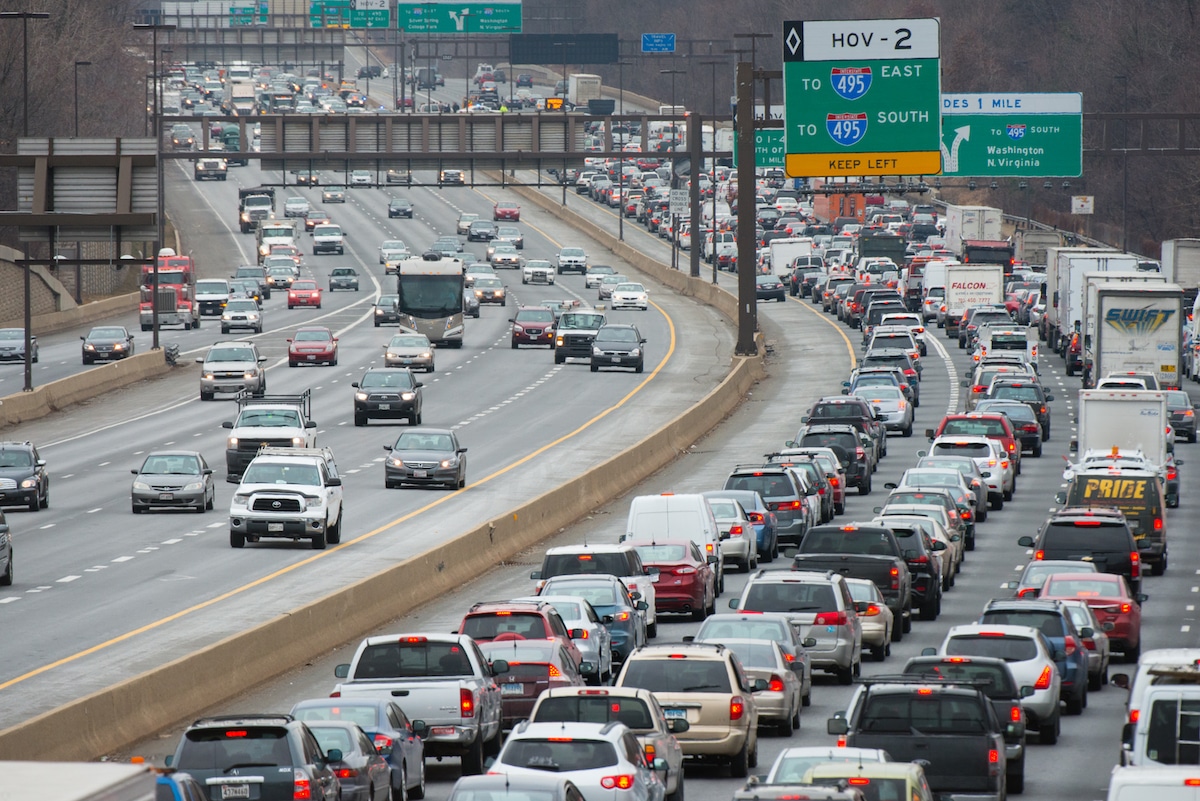States Propose Expanding Highways With Federal Infrastructure Funds Intended to Reduce Emissions

 Why you can trust us
Why you can trust us
Founded in 2005 as an Ohio-based environmental newspaper, EcoWatch is a digital platform dedicated to publishing quality, science-based content on environmental issues, causes, and solutions.
In November 2021, President Joe Biden signed the Bipartisan Infrastructure Package into law, which allocates $1.2 trillion toward infrastructure and was meant to reduce transportation emissions. While the federal government is guiding states to use the funding toward public transit and other improvements, like increased bike lanes, a new report finds that state and local governments may lean toward using the money toward highway expansions instead.
The report from U.S. Public Interest Research Group, a nonprofit organization, maps out highway projects across the country that could use up infrastructure funding while making climate change worse.
“America can’t afford to squander our historic investment in infrastructure on boondoggle projects,” James Horrox, policy analyst at Frontier Group and lead author of the report, said in a statement. “And yet, across the country, wasteful and damaging highway expansion projects are often first in line for public dollars.”
While there are dozens of highway projects across the country, the report emphasizes seven particular projects that would cost about $22 billion. Among the highlighted highway construction and expansion projects include Maryland’s proposed M-83 highway, which could expand a highway with four to six lanes in Montgomery County.
While state and local governments note highway projects are necessary to relieve congestion, the report authors explain that these construction and expansion projects only alleviate congestion for a short time period while also creating a financial and environmental burden.
“Since 1980, the U.S. has added nearly 870,000 lane-miles of highway — paving more than 1,648 square miles, an area larger than the state of Rhode Island — and yet, prior to the COVID-19 pandemic, congestion on America’s roads was worse than it was in the early 1980s,” the report states.
While some major projects, like the M-83 highway, are on hold, the new infrastructure package could encourage states to unpause projects and spend that money toward completing them. But the authors of the report are asking states to instead put the funding toward initiatives that are better for communities and the environment.
The report asks state and local governments to deprioritize highway projects, and instead focus on investing in other modes of transportation that decrease dependence on personal vehicle use; repairing existing roads; and looking to data for how people travel and the socioeconomic impacts of highways.
“We can take this injection of money and look at it as an opportunity to invest in 21st-century transportation,” said Matt Casale, director of environment campaigns at PIRG and a lead author of the report, as reported by Grist. “Options that don’t pollute our air, that don’t worsen the climate crisis, and that make our lives better.”
Subscribe to get exclusive updates in our daily newsletter!
By signing up, you agree to the Terms of Use and Privacy Policy & to receive electronic communications from EcoWatch Media Group, which may include marketing promotions, advertisements and sponsored content.

 233k
233k  41k
41k  Subscribe
Subscribe 




